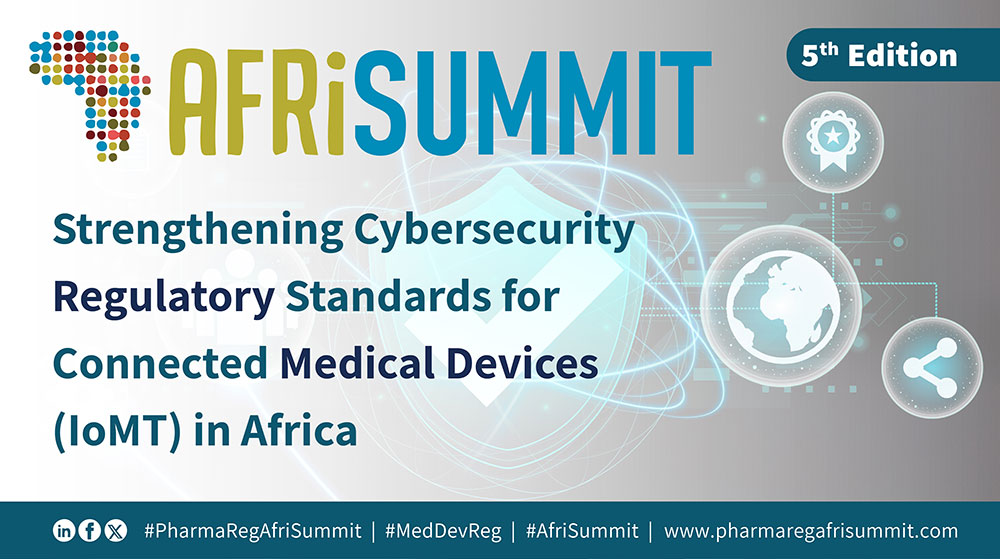Strengthening Cybersecurity Regulatory Standards for Connected Medical Devices (IoMT) in Africa
The integration of the Internet of Medical Things (IoMT) into healthcare systems across Africa has revolutionized patient care by enabling real-time monitoring, remote diagnostics, and personalized treatments. However, this digital transformation has also introduced new vulnerabilities, making healthcare institutions prime targets for cyberattacks.
Cybersecurity incidents in healthcare are escalating globally, and Africa is not exempt. In 2023, over 550 cybersecurity breaches were recorded in healthcare institutions worldwide, affecting the protected health information (PHI) of 108 million individuals, an unprecedented figure.
Specifically, in Africa:
- South Africa: In 2023, there was a 90% increase in ransomware incidents compared to the previous year.
- Nigeria: The Plateau State Contributory Healthcare Management Agency (PLASCHEMA) exposed around 45 GB of personal information about 37,000 individuals due to unsecured data storage.
These incidents underscore the urgent need for robust cybersecurity measures in the healthcare sector.
IoMT devices, such as pacemakers, insulin pumps, and infusion pumps, are increasingly susceptible to cyber threats. A study revealed that 73% of connected medical devices operate with known vulnerabilities that could be exploited by attackers.
Common vulnerabilities include:
- Outdated Operating Systems: 19% of devices still run legacy operating systems with no available security patches.
- Critical Vulnerabilities: 41% of devices contain at least one vulnerability rated as critical (CVSS score >9.0).
- Lack of Inventory Management: 38% of clinical engineering teams report having no systematic inventory of connected devices.
These weaknesses can lead to unauthorized access, data breaches, and even manipulation of medical treatments.
While some African countries have made strides in addressing cybersecurity in healthcare, significant gaps remain:
- Lack of Specific Standards: Many African National Regulatory Authorities (NRAs) lack detailed technical guidelines for assessing cybersecurity risks during pre-market evaluation.
- Resource Constraints: Limited cybersecurity expertise and funding hamper continuous monitoring and rapid response to security incidents.
- Cross-border Issues: Connected devices often operate across countries, creating jurisdictional complexities for enforcement and incident management.
Regulatory affairs professionals are pivotal in bridging the gap between innovation and patient safety. Their responsibilities include:
- Advocating for Cybersecurity Integration: Ensuring that cybersecurity requirements are incorporated into regulatory submissions.
- Monitoring Compliance: Overseeing that manufacturers conduct robust risk assessments and implement security controls.
- Facilitating Knowledge Sharing: Promoting awareness and training among healthcare providers and patients about cybersecurity hygiene.
To enhance the cybersecurity posture of healthcare institutions and connected medical devices in Africa, the following measures are recommended:
- Develop Harmonized Cybersecurity Frameworks: Establish clear, unified cybersecurity standards tailored to the African healthcare context.
- Invest in Capacity Building: Strengthen the technical and human resource capacities of NRAs to assess and monitor device security.
- Foster Public-Private Partnerships: Collaborate between governments, NGOs, and industry to improve regulatory infrastructure and foster innovation.
- Promote Security by Design: Encourage manufacturers to adopt “security by design” principles from the earliest stages of device development.
As Africa continues to embrace digital health innovations, addressing cybersecurity in connected medical devices is paramount. Regulatory preparedness in this domain protects patients, preserves device integrity, and supports the sustainable growth of the MedTech sector.
To explore these critical issues further, join leading experts and stakeholders at the MedDevReg AfriSummit 2025, where cybersecurity standards, regulatory frameworks, and the future of medical device regulation in Africa will be in sharp focus.
Register now at: www.pharmaregafrisummit.com/meddev to secure your spot and be part of shaping Africa’s MedTech regulatory landscape.





